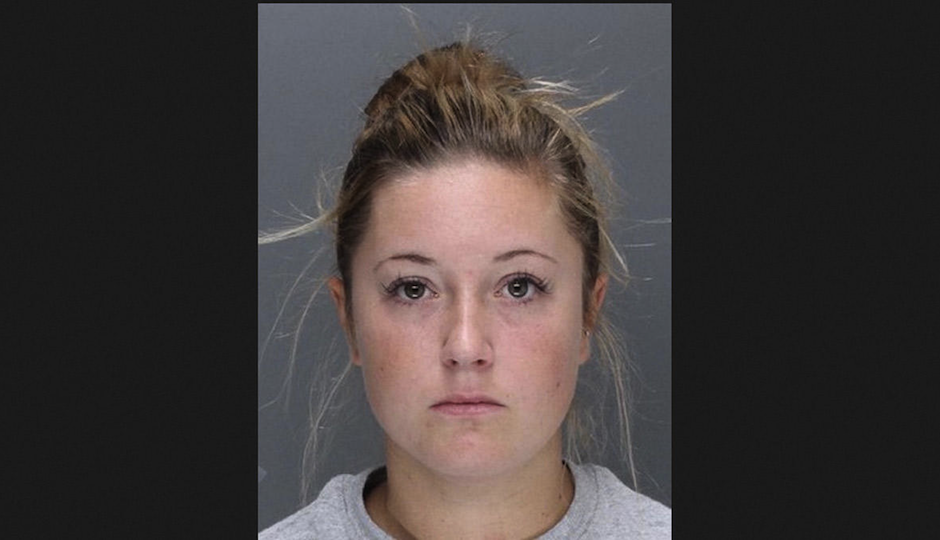Kathryn Knott’s Twitter Feed Focus of Court Hearing

The Twitter feed of Kathryn Knott, the now-lone defendant in the Center City gay bashing case, was the focus this morning at a pre-trial hearing. Judge Roxanne Covington heard motions brought forth by prosecutors and the defense as to whether or not Knott’s social media posts could be used as evidence against her during her upcoming trial.
“The purpose of today is to really clear up all things regarding the Twitter feed,” stated Assistant D.A. Mike Barry. Barry then provided four categories of Tweets from Knott’s account that he wanted to use as evidence: Tweets containing homophobic and anti-gay slurs, Tweets containing racial profiling, Tweets containing drinking behavior, and Tweets involving potential allegedly anti-lawful and anti-truthful behavior (such as kicking down a door during one of her policeman father’s raids).
G Philly wrote about Knott’s Twitter account in September 2014, highlighting a number of the Tweets that were discussed at today’s hearing, including ones where she stated “the ppl we were just dancing with just turned and mafe out with eatch other #gay #ew” and “Jazz flute is for little fairy boys”. Barry’s overall argument was that the Tweets were “overwhelmingly evident” and “relevant” to the motive of the case.
“Ms. Knott had sent a number of Tweets that showed a general dislike of gays and lesbians,” Barry told the court. “I have the right to show the court that she dislikes gays. [The Tweets] demonstrate that she does not like gay people, and I have every right to prove that she does not like gay people. It tells the story of the case.”
He later added, after presenting a series of the Tweets, “Ms. Knott has openly expressed bigoted views. She chose to Tweet these out.”
However, Knott’s defense attorney, Louis Busico, argued that that the posts did not have a clear connection to the case and that they should be excluded as evidence.
“There needs to be some connection between what the Commonwealth is introducing and the trial,” said Busico. “There is no nexus whatsoever. This is a smear tactic for smear tactic’s sake.”
He went on to argue that several of the Tweets were made when Knott was a college student, and that the Tweets could be interpreted in various ways.
“If we scrutinized everyone’s social media, we’d all have things that would be misunderstood,” Busico added. “We can’t become so politically correct that we can’t speak the truth.”
He then went on to ask Judge Covington to exclude “general themes” from the trial as they could perpetuate “spin.” Of note, he made mention that there was no hate crime protection for sexual orientation in Pennsylvania, and suggested that the Commonwealth was trying to depict a “suburbs versus city” mentality in their case.
Barry responded to Busico’s request.
“The fact was that [the victims] were attacked for being gay,” he said. “What [Buscio] is saying is that it is okay.”
This lead to a heated objection from Busico, and for Judge Covington to call a brief recess.
Upon her return, Judge Covington concluded that that the Commonwealth could use four social media posts that explicitly contained “anti-homosexual views” as evidence.
“This clearly establishes a state of mind that could lead to the aggravated assault of homosexuals,” she said. “Yes, the Tweets may not be interpreted as anti-homosexual. Nevertheless, the Tweets shall be admitted.
However, the Judge excluded the Tweets that involved racial profiling and use of alcoholic beverages as evidence as the “relevance was of low value.”
So far as Tweets concerning the legality and truthfulness of her other posts, the Judge was “unable to make a determination” at today’s hearing, and noted that it was “an issue for trial.”
In regards to the defense’s request to “prevent themes,” Judge Covington passionately rejected the request.
“This court is aware that the legislature has failed to include sexual preference in its hate crime statue,” she said. “However, this does not prevent the Commonwealth from categorizing this behavior or the behavior of the individuals. Just because it isn’t charged as a hate crime, the behavior can be interpreted in that manner.”
She added, “I don’t limit either of you from presenting the best case possible. I will not limit the themes you present within this case.”
On October 15, two of the other defendants in the gay bashing case took plea bargains: Kevin Harrigan pleaded to one count each of simple assault and conspiracy. Philip Williams pleaded guilty to one count each of conspiracy and aggravated assault. According to our previous report, “The guilty plea was given in exchange for a sentence of probation, with Harrigan to serve three years probation and Williams to serve five. Both men must perform 200 hours of community service at an LGBT center, and they are banned from entering Center City during their probationary period. But defendant Kathryn Knott turned down a plea deal…and she intends to go to trial. She pleaded not guilty in 2014 and remains free on bail.”


